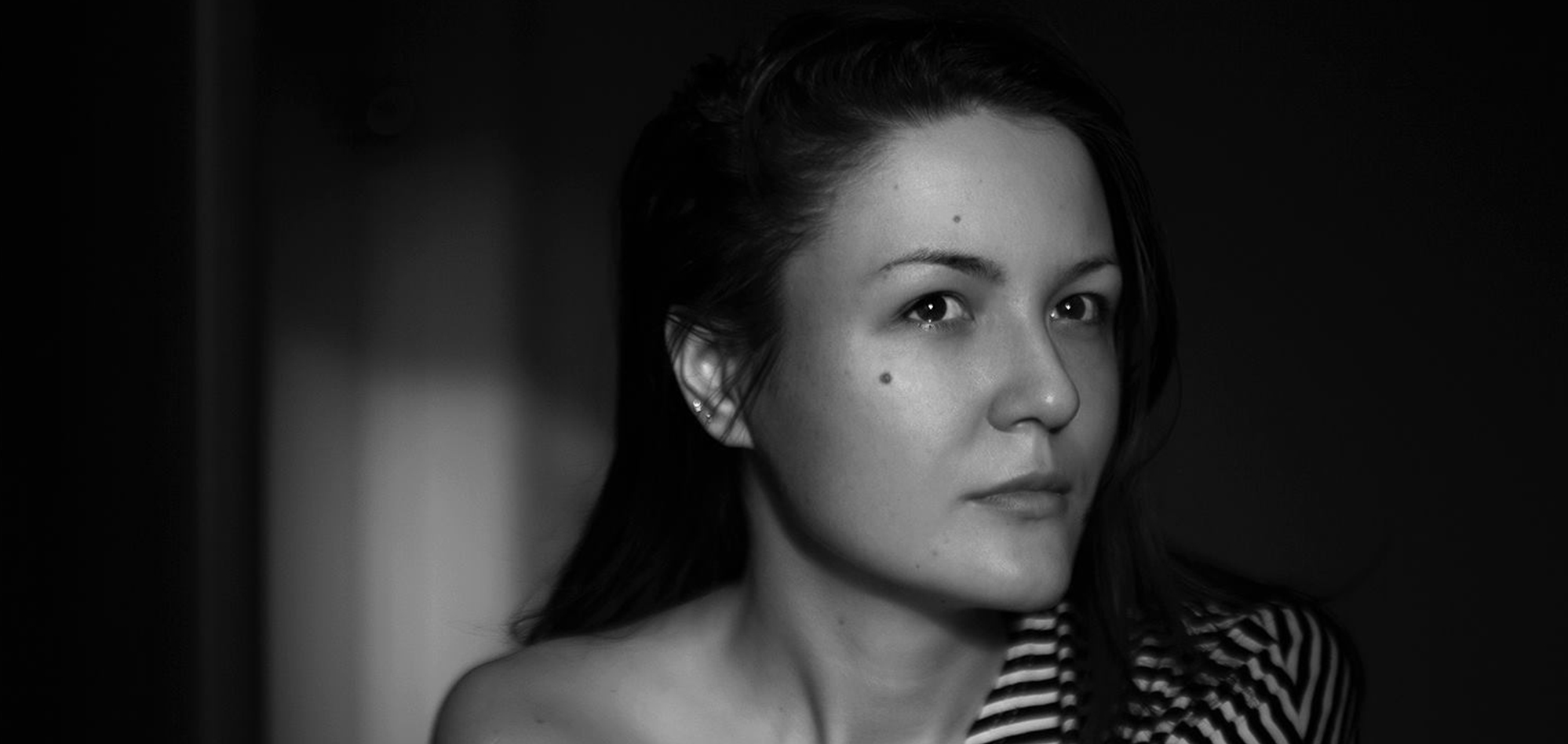Zhannat Alshanova is an award-winning writer-director and producer from Kazakhstan. She received her MA in Filmmaking from the London Film School. Her graduation short film “End of Season” premiered in the Cinéfondation strand of the 2018 Cannes Film Festival and won the Most Promising Director Award in Tel-Aviv as well as the Best Cinematography Award in Munich. In 2019, Zhannat got selected for Bela Tarr’s directing residency, where she developed and shot the short film “Paola Makes a Wish,” produced by the Locarno Film Festival, CISA and the Ticino Film Commission. The film was screened at various international film festivals, including the Locarno Film Festival, PÖFF Shorts and the Sundance Film Festival. Zhannat’s debut feature project “Mother Tongue” was selected for the Asian Project Market at the 2019 Busan International Film Festival and won ARTE France’s ArteKino International Award. Recently, she has served as a juror for the Sundance Collab Challenge “Time Capsule.” She is a Berlinale Talents and Sundance Institute alumna.
Tara Karajica talks to Zhannat Alshanova about short films, women in film and, more importantly, her latest short film, “History of Civilization” that premiered at the Locarno Film Festival in the Pardi di Domani section and won the Pardino d’Argento Award before screening at this year’s Toronto International Film Festival.
How did you get into filmmaking and what inspires you to make films?
Zhannat Alshanova: I have a background in Business and Marketing. So, after graduation, I worked in Finance. However, I have always gravitated towards the Arts. So, after work, I would go to different creative classes. Once, a friend invited me to a Psychology and Art workshop. There were five different women of different age and status; we all watched a film and then, the moderator asked each of us what we thought the film is about. To me, the answer felt so obvious and I was very surprised that each of the women had a completely different interpretation of the film. I also realized how much the answers revealed the character of each of us. For someone, that was a film about love; for another woman, it was a film about motherhood and for another, about jealousy and competitiveness. It really struck me. I think from that point, I started to look at films from a very different angle. However, it took me another year or two to wake up with the idea of becoming a film director.
Can you talk about your short film History of Civilization?
Z.A.: I have changed countries quite a few times and I felt that the moment when you make the decision to leave can be quite intimate and personal. I wanted to make a film about a young woman, who feels repressed and seeks freedom in a foreign country, but accidently discovers it within herself and realizes that she actually doesn’t have to leave in order to be free.
I also had the urge to make one more short film before moving into the feature, as I felt that I still haven’t explored the form to its extent. It was also a test drive of the crew. For example, it was my first time working with the cinematographer, Leandro Ferrao. I liked his reel, but for me it was important to see if we are a creative match and can work together on a bigger project. The producer, Evgeniya Moreva, and production designer, Sasha Shegay, are my close friends, so it was a total joy working together.
How do you see the short form today?
Z.A.: I think that short films are so important! I made four short films and they allowed me to reach out to such a diverse audience across the world and I also learned so much from making each of them. It is such a great tool to see if what you think translates onto the screen. I also believe that the development of technology gives you so many opportunities to be creative and work around the limitations.
What is your opinion on the situation of women in film today?
Z.A.: I hope we can soon reach the point where films are made and consumed without the need to discuss gender around them. We are a long way from that still, but I prefer to be judged as a filmmaker as equal as any other.
Who is your favorite female filmmaker and what is your favorite film by a female filmmaker?
Z.A.: I really love the work of Lucrecia Martel, Andrea Arnold and Claire Denis. I think they all have such a sensual style, which really speaks to me. I love Friday Night by Claire Denis for its simplicity and erotism. It was one of the inspirations for History of Civilization. It made me realize that sometimes you don’t need a grand story and a complicated plot in order to create a compelling story. From Lucrecia Martel’s work, I love The Headless Woman. It really impresses me how she works with the sound and the character’s internal world. From time to time, I rewatch her short film Pescados; it’s such a joy! My other favorite film is Red Road! Such an emotional rollercoaster!
What are your next projects?
Z.A.: I am currently developing two feature film projects. One is called Mother Tongue and it follows a journalist who gets a challenging probation assignment to return to her motherland and write an article about a mysterious sleeping sickness that hit a small town in Kazakhstan. The other one is A Winner is Seen at the Start. It’s a coming-of-age sport drama about a young girl who is fighting against imposed values and goals while trying to explore her own path.
Photo credits: Zhannat Alshanova.
This interview was conducted at the 2020 (virtual) Toronto International Film Festival.










